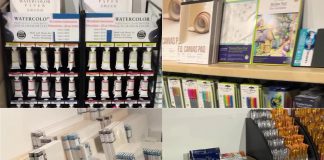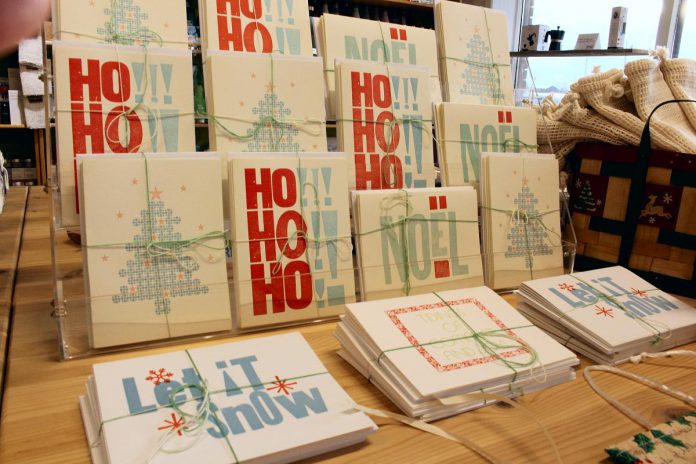
‘Tis the season for gifting. As the snow arrives, we are inundated with reminders to want stuff and buy things, both for ourselves and for loved ones.
According to Zero Waste Canada, household waste increases by more than 25 per cent over the holidays. Wrapping paper, ribbon, and gift bags contribute to this increase.
But within that unsightly statistic, there is also a particularly sad truth: many unwanted presents also make their way to the landfill within six months of being received. Other gifts may last longer, but are still destined for landfill because they are not designed to be repaired or repurposed.
Changing personal and cultural gift-giving traditions is easier said than done. How can people talk about changing these traditions with friends and family without causing offence?
We can begin the conversation by acknowledging the reasons for giving: generosity, gratitude, and love — all these feelings can be tied to gift-giving decisions. We can affirm these same feelings as the common ground we need to become more thoughtful about reducing waste.
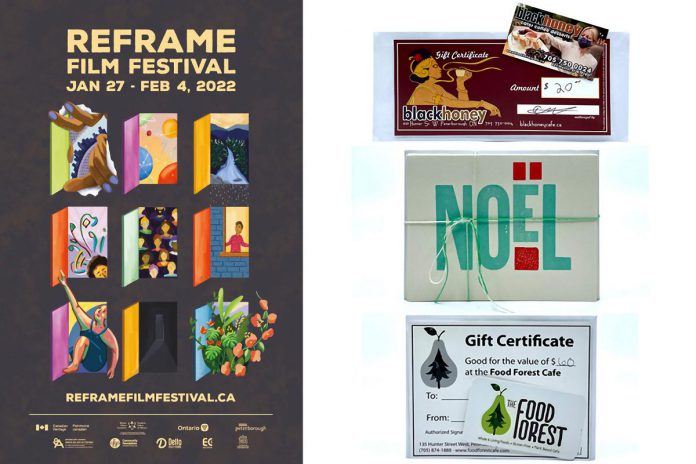
When we make space together for these constructive conversations, it is neither rude nor unkind to ask friends and family to make efforts to gift more sustainably. We can be honest about our love for sharing special experiences and waste-free consumable gifts.
Often, when we reflect on what brings us joy and adds meaning to our lives, many of us will call to mind an experience or a moment in time with loved ones or in solitude. When we share these joyful reflections with others, we can reach a deeper appreciation for what truly matters. By connecting to that joy we can then suggest specific experiences or activities that align with our priorities.
Another gift option to keep in mind is memberships. Local non-profit organizations like B!KE: The Community Bike Shop, the Peterborough Tool Library, or the Peterborough Potters’ Guild offer access to a wealth of tools and expertise as well as workshops. Even better, participating in these organizations can introduce people to new friends with shared interests in sustainable living.
Let’s assume you’ve had those conversations and you have a gift in mind for someone. How do you present that gift in a waste-free way?
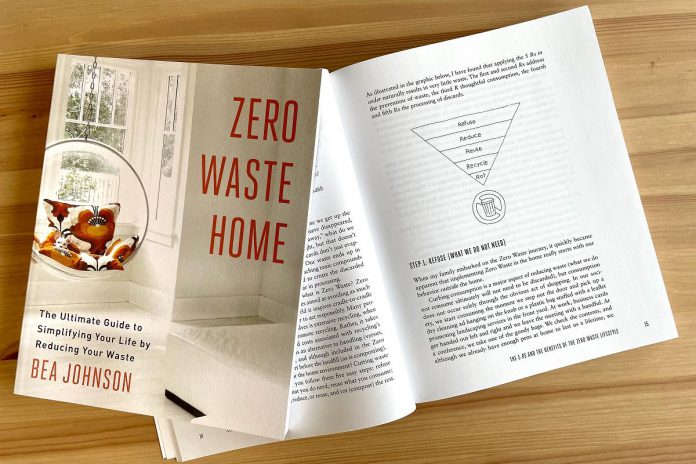
Presentation matters. A useful checklist for sustainably wrapping gifts is the 5 Rs of Bea Johnston’s book Zero Waste Home: Refuse, Reduce, Reuse, Rot (aka compost), and Recycle.
For example, you can start by refusing to use shiny foil wrapping paper, gift bags, and plastic ribbon, and reduce your consumption of materials that are destined for the landfill. Instead, use a fabric gift bag that can be reused again and again for years to come.
Dye-free craft paper, paper tape, and twine can be composted or recycled depending on your municipal waste guidelines. A textile, tied with fabric ribbon or twine, can be used to enfold your parcel. A beautiful tea towel wrapped around a beeswax candle or bottle of maple syrup, is one way to present a gift within a gift and avoid waste in the process.
Becoming a more conscious consumer also includes considering the whole life cycle of a product. How was it manufactured, what materials and energy were used, and what will happen to it at the end of its useful lifespan? For example, if the product is made of plastic, that plastic will persist in the environment for hundreds of years.
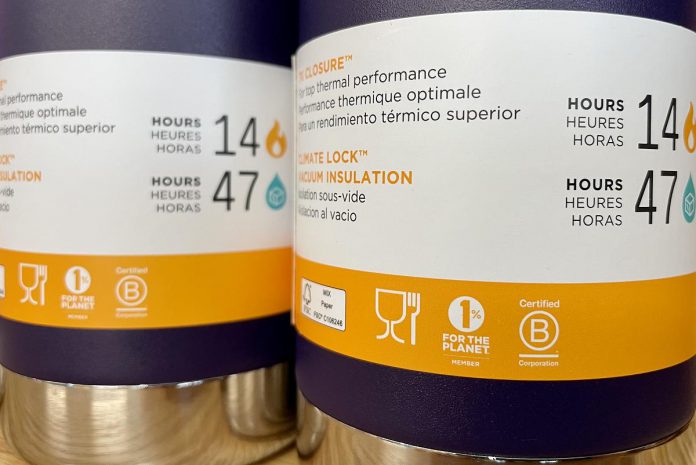
One challenge that conscious consumers face is how to cut through advertising and greenwashing to identify if a product is actually sustainable.
Look for B Corp Certification. This certification is offered by a third-party non-profit group called the B Lab, which holds companies legally bound to a high standard of ESGs (which stands for Environmental, Social, Governance). Examples of prominent B Corps include Patagonia, Klean Kanteen, Grosche, and Pela. Find out more at bcorporation.net/directory.
Looking for the B Corp logo is just one tool you can use to discern sustainable products from greenwashed products.
Shopping locally is another thing that conscious consumers can do. Finding gifts locally can be both more environmentally sustainable and more socially responsible. Locally made products have a smaller carbon footprint than goods that require shipping from afar.
When you choose to shop at locally owned small businesses, more money is kept circulating in your community. Local business owners often purchase goods and services from other local businesses, which include retailers, service providers, restaurants, and farmers.
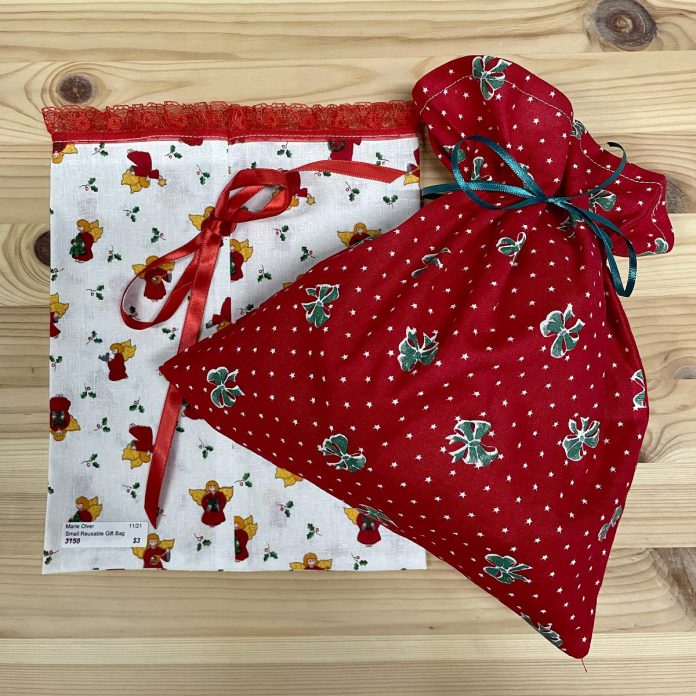
The same is true of local artists and makers. These people make up the fabric of your community and like you, they pay taxes, access health care, and live their lives alongside you. Local business owners and artisans are more invested in their community’s future and are therefore more accountable.
Local business owners tend to support their local non-profits and charities. Local businesses like the Silver Bean Café, Watson & Lou, and Wild Rock Outfitters have donated to GreenUP and other non-profits. This support is then used to offer programming and services for little or no cost, which is truly a boon to our community. So, by shopping local, you are in turn supporting local charities.
This holiday season, and into the New Year, I encourage you to raise environmental awareness within your social circles. We need to create space to talk about the importance of waste reduction and the urgency of the climate emergency. These conversations themselves are a gift. By being honest and specific about what brings us lasting joy, we can also minimize the stress and uncertainty that sometimes accompany gift selection.
I wish you and your loved ones a happy, healthy, and sustainable holiday season filled with enduring joy.
The GreenUP Store & Resource Centre is located at 378 Aylmer Street North in downtown Peterborough. We are open for in-store shopping with extended holiday hours: 10 a.m. to 5 p.m. Mondays through Thursdays, 10 a.m. to 6 p.m. on Fridays, 10 a.m. to 5 p.m. on Saturdays, and 12 p.m. to 3 p.m. on Sundays.
For last-minute shopping, we are open from 10 a.m. to 3 p.m. on Christmas Eve. We are closed December 25 to January 3, re-opening January 4 with regular hours. You can also shop online anytime at shop.greenup.on.ca.
This story has been published in partnership with Peterborough GreenUP.


























